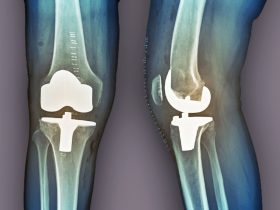In the complex and highly regulated world of healthcare, medical credentialing stands out as one of the most crucial processes for both providers and organizations. It is the foundation of trust, quality assurance, and legal compliance. Without proper credentialing, even the most skilled physicians and healthcare professionals can face delays in service delivery, reimbursement issues, and loss of credibility.
This article explores what medical credentialing is, why it matters, the key steps involved, and how outsourcing credentialing services can save time, reduce errors, and ensure full compliance with healthcare regulations.
What is Medical Credentialing?
Medical credentialing is the process of verifying a healthcare provider’s qualifications, including education, training, experience, licenses, certifications, and professional history. It ensures that medical practitioners meet the standards required to provide care and bill insurance companies.
Credentialing is required for physicians, nurse practitioners, dentists, physical therapists, psychologists, and other licensed healthcare providers. It is a mandatory prerequisite for enrolling with insurance networks, working in hospitals, and legally offering medical services to the public.
Why Medical Credentialing is Important
Medical credentialing serves as a safeguard for patients, healthcare institutions, and insurers alike. Here’s why it’s critical:
1. Patient Safety
Credentialing ensures that only qualified, trained, and licensed professionals treat patients. This process verifies the provider’s competence and background, helping minimize medical errors and malpractice risks.
2. Insurance Reimbursement
Providers must be credentialed and enrolled with insurance companies to receive payments. Without proper credentialing, claims are denied, leading to financial losses.
3. Regulatory Compliance
Hospitals, clinics, and private practices are legally obligated to credential their staff. Failing to comply can result in penalties, lawsuits, or the loss of operating licenses.
4. Institutional Credibility
Accrediting bodies like The Joint Commission and NCQA require comprehensive credentialing practices. A facility’s reputation and accreditation depend on the thoroughness of its credentialing.
What is the Difference Between Credentialing and Provider Enrollment?
Though often used interchangeably, credentialing and provider enrollment are distinct steps.
- Credentialing involves verifying the provider’s qualifications (education, training, licenses, etc.).
- Provider Enrollment is the process of enrolling a provider with insurance companies so they can receive reimbursements.
Both steps are critical, and they often occur simultaneously or consecutively during the onboarding process.
Key Steps in the Medical Credentialing Process
Credentialing is a detailed and time-sensitive process. Below are the core stages:
1. Data Collection
The provider submits personal and professional information, including:
- Medical degree and board certifications
- Work history and hospital affiliations
- DEA registration and malpractice insurance
- State medical licenses
2. Primary Source Verification (PSV)
Credentialing specialists verify submitted data directly from original sources, such as medical schools, licensing boards, and previous employers. This step ensures the information is accurate and complete.
3. Credentialing Committee Review
A credentialing committee, often within a hospital or healthcare network, reviews all collected and verified data before approving a provider for work.
4. Insurance Panel Enrollment
Once approved internally, the provider can be enrolled with insurance payers such as Medicare, Medicaid, and private insurers.
5. Re-Credentialing
Credentialing isn’t a one-time task. Providers must be re-credentialed every 2 to 3 years, depending on payer and regulatory requirements.
Common Challenges in Medical Credentialing
Medical credentialing is highly detailed and often time-consuming. Mistakes and delays can lead to significant consequences. Here are the most common problems:
- Incomplete Applications
Missing or incorrect information can halt the credentialing process and delay approvals.
- Inconsistent Follow-Ups
Credentialing involves numerous third-party verifications. Without proactive follow-ups, delays are inevitable.
- Changing Payer Requirements
Every insurance company has its own guidelines. Staying current with all of them is difficult without a dedicated credentialing team.
- Staff Shortages
Many clinics lack trained staff who specialize in credentialing, causing errors and compliance risks.
How Long Does Medical Credentialing Take?
The medical credentialing process typically takes between 60 to 120 days, depending on:
- Provider’s responsiveness in supplying documentation
- The number of insurance companies being enrolled with
- Delays from third-party verifications
- Internal committee review timelines
Delays are common, which is why early planning and professional assistance are recommended.
Benefits of Outsourcing Medical Credentialing Services
Given the complexity and high stakes of credentialing, many healthcare providers choose to outsource this task to experienced credentialing service providers. Here’s why:
1. Expertise and Accuracy
Credentialing specialists understand payer requirements, timelines, and processes, reducing the risk of errors and denials.
2. Faster Turnaround Times
With a dedicated team handling your credentialing, the process is completed more efficiently, helping providers start work sooner and bill insurance faster.
3. Ongoing Maintenance
Outsourcing ensures your credentialing is kept current, with reminders and renewals handled proactively.
4. Focus on Patient Care
Providers and administrators can spend more time on clinical and operational matters, rather than paperwork.
5. Cost-Effective
Hiring an in-house credentialing specialist can be costly. Outsourcing eliminates the need for extra payroll, training, and software costs.
Credentialing Services Offered by Med Brigade
At Med Brigade, we provide end-to-end medical credentialing services for healthcare providers, private practices, and hospitals. Our experienced credentialing team ensures that your practice remains compliant, reimbursable, and ready to grow.
Our credentialing services include:
- Initial credentialing and payer enrollment
- Re-credentialing and updates
- Medicare and Medicaid enrollment
- CAQH profile management
- Hospital privileges application
- NPI registration and renewals
- Malpractice insurance verification
We tailor our services to meet the specific needs of individual providers, group practices, and medical facilities.
Why Choose Med Brigade?
- Extensive experience in medical billing and credentialing
- Transparent and affordable pricing
- Dedicated account managers and credentialing specialists
- Fast, accurate, and responsive service
- Real-time updates and tracking on credentialing status
Whether you are a solo physician or managing a network of providers, Med Brigade ensures a seamless credentialing experience from start to finish.
Conclusion
Medical credentialing is much more than a bureaucratic formality—it’s a critical process that protects patients, ensures compliance, and guarantees your right to practice and receive insurance reimbursements.
In a healthcare industry filled with regulatory complexities, outsourcing medical credentialing services is a smart and strategic move. By partnering with experienced professionals like Med Brigade, you can eliminate delays, avoid costly mistakes, and focus on what matters most—delivering exceptional care to your patients.







































Leave a Reply